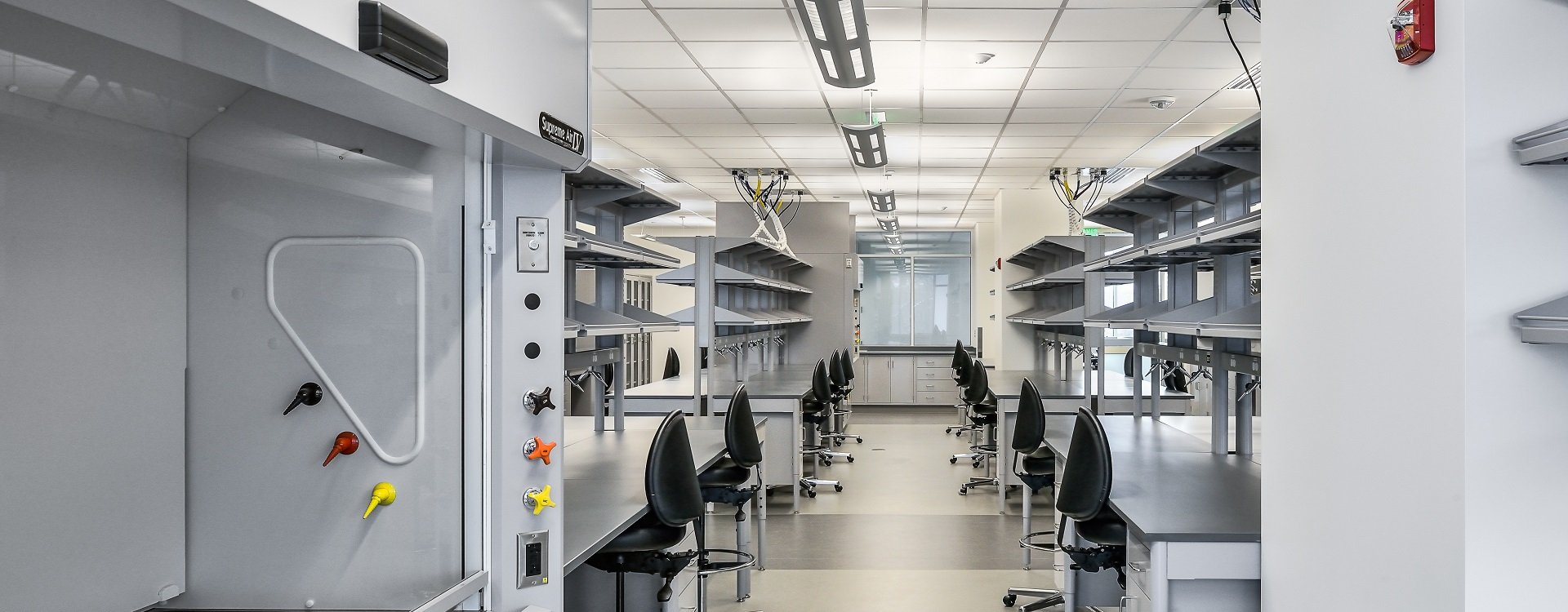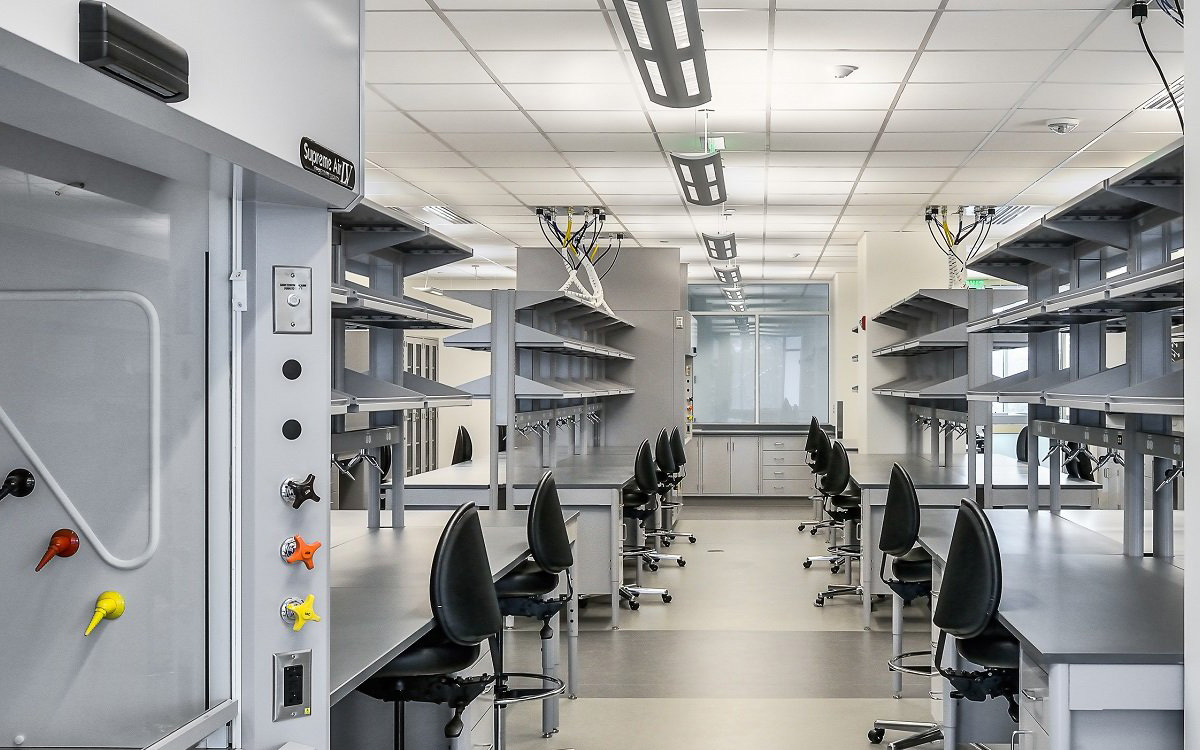Four Things to Consider Before Choosing Ductless Fume Hood
Date: 2022-01-19 Source: RUANQI Classification: Resources
Ductless fume hood (sometimes called carbon filter fume hood or filter fume hood) is a self-cleaning pollutant control device, which can remove harmful smoke, vapor and particles in the laboratory through the filter layer. Different from the traditional fume hood, the installation cost is very low and no piping system is needed.
Therefore, many people thought it was the best in the primary election. "It can not only control chemical smoke, but also be cheaper and easier to install. That makes sense, doesn't it? " It's not that simple! Before making the final decision to buy ductless fume hood, some important matters need to be considered. Fully consider the following four aspects to ensure that ductless fume hood is the right choice for your laboratory and application.
01 Is your usual application suitable for ductless fume hood?
Although there are different types of ductless fume hoods, some fume hoods still limit the application in them.
1) Some ductless fume hoods should only be used for trace pollution or specific processes. Other filter fume hoods can be used for a variety of chemicals, but please remember that a larger amount of chemicals will always shorten the filter life. This means: Only a limited variety of chemicals can be used.
2) Do not use extreme heating in fume hood, such as acid digestion application.
3) Appropriate amount of chemicals should be used, each of which is about 500ml or less. Maintain a moderate chemical exposure time.
If your application doesn't meet these parameters, the standard ducted fume hood may be the best choice to achieve maximum safety and economic feasibility. If you don't know which chemicals to use in the future, or if your list of chemicals is very long, you'd better use it in the fume hood. At this point, you should discuss your application with fume hood experts to determine which fume hood is the main recommendation.

02 Can the available carbon filter be used to effectively filter the chemicals involved in your application?
Generally, ductless fume hoods will be equipped with chemical filters. Specific filter types increase the chemical capture ability of different chemical families; However, some chemicals can't be safely filtered or the filtering efficiency is not high enough, so ductless fume hood is an economically infeasible choice.
Filter fume hood can filter out acid, alkali and solvent with a certain type of filter, but there are still some chemicals (low molecular weight solvents) that cannot be effectively filtered.
In order to filter various chemical components, different types of carbon filters are available on the market, which can be used in ductless fume hoods:
1) HEPA (High Efficiency Particulate Air) filter: a particulate filter with an efficiency of 99.99%, used for chemical powder and particulates.
2) Organic carbon filter: activated carbon can chemically adsorb organic vapors.
3) Acid-sulfur carbon filter: impregnated with carbon to neutralize acid and sulfur-containing compounds.
4) Amine-carbon filter: impregnated with carbon to neutralize ammonia/amine compounds.
5) Carbon filter: impregnated with carbon to neutralize formaldehyde
6) Mixed bed carbon filter: 60% impregnated carbon can neutralize acid and sulfur compounds (20%), ammonia and amine compounds (20%), formaldehyde compounds (20%) and 40% organic activated carbon.
7) Radioisotope carbon filter: impregnated with carbon to neutralize radioisotopes.
If all the chemicals involved in your application match one of these filter types, it indicates that your application will be suitable for use with ductless fume hood, which is a good sign. However, there are some chemical exceptions for each filter type. For example, some organic substances (such as methanol) are very volatile and light in weight, and cannot be effectively adsorbed on organic filters. Some acids (such as perchloric acid) have special hazards and should be used in special fume hoods.
The best way to determine whether your chemical is compatible with the type of filter provided is to ask the supplier's chemical expert for chemical evaluation. They will review your application, help you determine whether it is suitable, give advice on appropriate equipment and filters, and provide you with necessary preventive measures. In some cases, you can use the supplier's chemical guide of ductless fume hood to determine the correct filter type. However, please remember that this guide is not an approved list of chemical substances; You and your security officer must finally determine which chemicals, quantities and filters to ensure your personal safety.

03 How often do you need to change the filter?
Although you don't have the extra cost of pipe installation and wiring related to the standard fume hood, you still have to consider how often you need to replace the filter and the related maintenance cost to calculate your estimated annual filter cost. The service life of the filter can range from several months to two years. You will want to find out the expected service life of the filter and weigh it with the cost of installing a standard fume hood. In addition, we should also consider the energy cost of running a standard fume hood, which removes mild air from the laboratory, thus increasing the burden on the HVAC system.
Filter life (and filter replacement time) depends on several factors:
1) What chemicals are being used?
2) What is the filter capacity of the chemicals used?
3) What is the evaporation rate of each chemical?
4) What is the quality of chemicals used?
5) What is the daily life of each chemical?
6) What is the temperature of each chemical?
04 How to balance the advantages and disadvantages of using ductless fume hood?
If you are sure that ductless fume hood is the most suitable for your application, then the last thing to do is to determine how the advantages of ductless fume hood can overcome its disadvantages, and how they are consistent with the overall goal of your company. The following table summarizes the important advantages and disadvantages, but the final decision depends on you and your security officer, and you should give full consideration before making a decision.
Favorable:
1) Movable;
2) Installation does not need to go through walls;
3) Energy conservation;
4)Installation is more cost-effective.
Unfavorable:
1) The internal blower is a factor that produces noise;
2) The filter needs to be maintained and treated;
3) Limited application of carbon filter:
4) There is a greater risk of chemical exposure when installing filters for loading.
When considering whether to buy a ductless fume hood, these four important considerations will help you to make the safest, most economical and reasonable choice of facilities.




